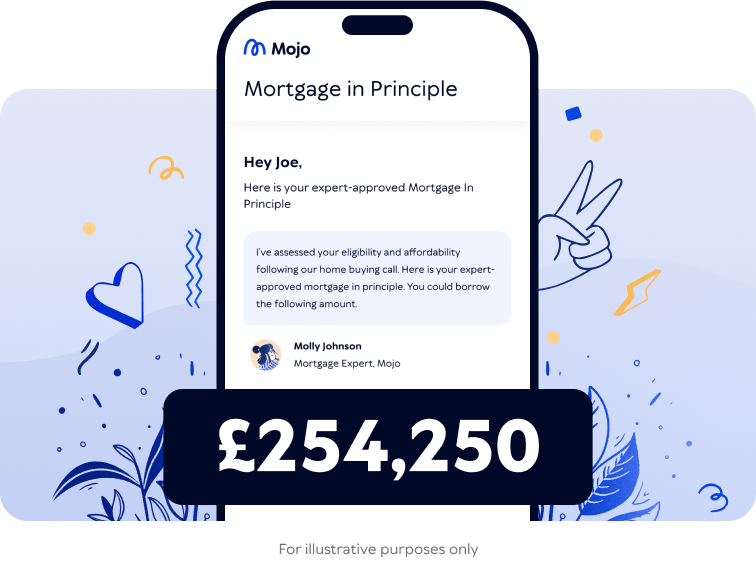Should I buy a house or a flat?
Buying a home is an exciting time, but with it comes lots of decisions. One of them is whether you opt to buy a house or a flat. Here are just some of the things you need to think about...


Flats vs houses: which are most popular amongst home buyers?
While houses are still the most popular option amongst homeowners, almost one in five mortgage applicants buy a flat. Flats were particularly popular in 2022 and 2023, likely when house prices were booming, mortgage rates were starting to rise and home buyers were looking for the most affordable way to get on the property ladder.
Apartment blocks continue to impress home buyers - particularly first-time buyers - as developments are geared towards the modern professional lifestyle. With many flats now boasting communal outdoor space, co-working options and even luxury additions such as an on-site gym or spa, we may see flats rise in popularity in the coming years.
Year | % of home buyers looking for flats | % of home buyers looking for houses |
|---|---|---|
2025 | 19% | 79% |
2024 | 19% | 79% |
2023 | 20% | 78% |
2022 | 23% | 76% |
When we look at regional splits, it’s not surprising to see Londoners favour apartment living as home buyers look for connectivity to the capital at a more affordable price point.
Mortgage applicants in the majority of other regions favour houses over flats, though this split is more pronounced in Northern Ireland and the East Midlands.
| % of home buyers looking for flats | % of home buyers looking for houses |
|---|---|---|
East Midlands | 7% | 93% |
East of England | 9% | 89% |
London | 54% | 42% |
North East | 9% | 90% |
North West | 8% | 92% |
Northern Ireland | 5% | 95% |
Scotland | 31% | 68% |
South East | 19% | 78% |
South West | 13% | 86% |
Wales | 9% | 91% |
West Midlands | 8% | 92% |
*Data taken from 1 January 2024 to 31 December 2024
7 questions to ask yourself when deciding between a flat and a house
1. How much can I afford?
Flats tend to be more affordable than houses though, of course, this depends on lots of things such as the size and location of the property. A lower property value requires a smaller deposit and can also result in lower monthly mortgage payments, which can be ideal for first-time buyers on a tight budget.
Do remember that you’ll need to factor in other costs like service charges and ground rent for flats, though, which can add to the overall expense.
2. How much space do I need?
This one’s obvious, but flats tend to be smaller than houses and many don’t come with much access to outdoor space. If you’re planning to extend your family, need plenty of storage or would really enjoy spending time out in the garden, then you’ll need to consider whether a flat will give you everything you need.
3. Where do I want to live?
Flats tend to be concentrated in popular areas like cities, which can be really handy if you want to live in a bustling, central location. It really does depend on what your pace of life is, where you work and perhaps even where your friends and family are based.
4. What amenities do I need access to?
If you need to commute into work daily, a remote location with patchy access to public transport might not be ideal versus a centrally located flat with just a few minutes’ walk to the office. Similarly, you may find that a house in a suburban area gives you access to all the amenities you need.
5. Am I comfortable being solely responsible for maintenance and repairs?
As a property owner, you’ll need to be responsible for most repairs regardless of whether you live in a flat or a house. However, with a flat, some larger communal repairs (such as any issues with your roof) may well be shared among all residents. This can be both a good and a bad thing. On the plus side, you won’t be responsible for arranging these important repairs but, conversely, you’ll have less control over who carries them out.
6. What does the future look like?
Think about where you see yourself in two, five or even ten years’ time. Is this going to be your ‘forever’ home or simply your first step on the property ladder? Your long-term goals will influence whether you’re looking for a home that works perfectly ‘for now’ or whether you want to buy a property that can be altered and improved to meet your needs in the future.
7. Is investment potential important to me?
Houses tend to appreciate in value more significantly than flats - though this isn’t always the case. Consider how much property prices have grown in the past and the potential for future growth in the local area.

Making the right choice for you
Talk to a qualified mortgage broker to find out how much you can afford and what mortgage options are available.
From here, you can make a more informed decision on whether a house or a flat is the right step on the property ladder for you.
Advantages and disadvantages of buying a flat
-
More affordable. Typically speaking, flats are cheaper to buy than houses in the same area. This can make flats more attractive to first-time buyers or those on a tight budget.
-
Lower running costs. Flats tend to be smaller, which means lower utility bills and potentially cheaper Council Tax.
-
Less maintenance. The upkeep of a flat’s exterior and communal areas is usually sorted out by a management company, with the cost covered by your service charges.
-
Central location. Many flats are located in central areas, such as cities, providing great access to public transport and local amenities.
-
Communal amenities. Some developments offer resident access to shared facilities such as a gym, communal gardens or co-working spaces. This can help you live in luxury without an unattainable price tag.
-
Enhanced security. Many flat buildings have extra security features like intercom systems or even a concierge service which can add an extra layer of security.
-
More availability. You may find there are more flats available to you than houses within your price range - likely because more flats can be built on one plot of land. This can be really handy if you’re keen to move quickly and don’t want to wait for new properties to come on the market.
-
Leasehold ownership. Most flats are leasehold, which means you have the right to live in the property for a fixed period of time but you don’t own the land it’s built on. Choosing a property with a short lease can make it more challenging to get a mortgage.
-
Extra costs. You’ll likely need to pay service charges and ground rent to cover maintenance of communal areas.
-
Less space. Flats tend to be smaller compared to houses. So, if you need a bit more room or extra storage space, a flat could be restrictive.
-
More restrictions. You may be subject to restrictive covenants about pets, noise levels or even property alternations which can be inconvenient.
-
Shared space. You’re living in much closer proximity to your neighbours so noise from surrounding apartments may be unavoidable.
-
Selling challenges. You could find it harder to make a significant profit on your flat in the future, as houses with land tend to appreciate in value more than flats.
Advantages and disadvantages of buying a house
-
Freehold ownership. It’s likely the house you buy will be freehold, which means you own both the property and the land it sits on. This gives you greater control over your property - and also means you don’t have to pay ground rent.
-
More space and privacy. Houses are usually more spacious than flats and, depending on the type of property you choose, more private. You may also have access to a private garden - ideal for those rare British sunny days.
-
Potential for change. You generally have more freedom to renovate, extend or personalise your home.
-
May grow in value. Houses tend to appreciate in value more significantly over the long term, which can make them a good investment opportunity.
-
No service charge. You won’t have to pay regular service charges for communal areas as you’re solely responsible for the home.
-
Fewer restrictions. You aren’t subject to the rules and regulations of a leasehold agreement or beholden to a management company. This could give you greater freedom to, for example, get a new four-legged friend!
-
More expensive. Houses often have a higher purchase price (meaning larger deposit and/or higher mortgage payments). General costs such as utility bills and Council Tax also tend to be higher depending on how big the house is.
-
Full responsibility. You’ll be solely responsible for all maintenance and repairs, which can be costly - not to mention stressful to sort out.
-
Less security. You may not have the same level of built-in security as you would with a flat, though it’s of course possible to install your own security systems.
-
More maintenance. As houses tend to be larger, you’ll have more to maintain. You’ll also have to consider garden upkeep if you buy a property with a large amount of outdoor space.
-
Location compromises. Location can significantly impact the cost of your house. You may need to compromise on amenities to buy an affordable property, such as buying a home with a slightly longer commute into the city centre.
The average cost of buying a house vs a flat across the country
There’s no doubt about it - flats are more affordable than houses in every region in the UK. However, there are nuances to this. Where you buy, the size of property you buy and the features of your new home will all make a big difference to the price you pay.
Let’s take size as an example. The average size of a converted flat is 65 square metres with the average size of a purpose-built flat being 58 square metres. That’s much smaller than the average size of other house types such as terraced (88 square metres), semi-detached (97 square metres) and detached (149 square metres) houses. It makes sense that you’d pay significantly less for a much smaller amount of space.
The average price of a flat in the UK (£173,860) is 62% cheaper than the average price of a house (£330,665). In some areas, particularly in Northern Ireland, there is less of a stark difference between the price of a flat or a house. However, those in the South East may find a flat a much more affordable option.

“Flats can be a great option for those taking their first step onto the property ladder as a smaller house price naturally requires a smaller deposit. Taking the minimum deposit size of 5% as an example, you’d need to save up just £8,693 to get a mortgage for a flat versus £16,533 for a house in the UK.”
John Fraser-Tucker, Head of Mortgages
| Average price of a flat | Average price of a house (including detached, semi-detached and terraced houses) | % difference |
|---|---|---|---|
East Midlands | £129,534 | £256,853 | 66% |
East of England | £198,660 | £386,522 | 64% |
London | £441,704 | £825,682 | 61% |
Northern Ireland | £136,273 | £200,534 | 38% |
North East | £103,232 | £195,770 | 62% |
North West | £140,741 | £259,035 | 59% |
Scotland | £130,628 | £242,655 | 60% |
South East | £218,598 | £476,203 | 74% |
South West | £182,222 | £365,066 | 67% |
Wales | £131,622 | £231,771 | 55% |
West Midlands | £142,564 | £287,896 | 68% |
Yorkshire & The Humber | £130,540 | £239,997 | 59% |
Average cost across the country | £173,860 | £330,665 | 62% |
*Average property price in February 2025, taken from the UK House Price Index

Find out how much you could afford
Buying a new property? Our Mojo mortgage brokers can help:
Free expert advice and help with all your mortgage questions
Affordability & eligibility assessment so you know how much you can borrow
A mortgage in principle to help you with your property search
Top 5 things to look out for if you buy a flat
When securing a mortgage for a flat, there are a few specific things you’ll need to keep in mind…
Ground rent & service charges
These extra expenses can affect your affordability, so lenders will take them into account when deciding how much you might be able to borrow. While your solicitor should go through your lease and let you know of any significant clauses (such as how and when service charges or ground rent can be increased), it’s well worth you having a read through too to make sure you’re aware of your legal obligations.
Time left on your lease
Most flats are leasehold so you only own the right to live in the property for a set period of time. The leasehold can be any amount up to 999 years. Having a shorter lease (less than 80 years remaining) can make it trickier to get a mortgage - particularly those at the most competitive rates.
Location
You may find it trickier to get a mortgage on a flat situated above a commercial property (such as a shop or restaurant), as this could impact the flat’s desirability and affordability in the future.
Building type
This applies to both flats and houses, but it can be harder to secure a mortgage if the property is made on non-standard construction material. Lenders may also be more cautious about studio flats, ex-council flats, basement flats, or flats in multi-storey buildings.
New builds
Lenders may view new build flats as higher risk, due to potential depreciation in value after you first purchase them.
FAQs
Most flats are leasehold, which means you own the right to live in the property for the duration of the lease term. You don’t own the land it’s built on, though - the freeholder does - and you’ll need to pay ground rent to them.
Freehold flats are much less common. Lenders can be cautious about them as it’s not always obvious who’s responsible for looking after or insuring the building.
You may have also heard of ‘share of freehold’ or ‘commonhold’ flats, where each flat owner owns the freehold of their individual home and the communal areas are owned and managed by a commonhold or residents’ association. This is still relatively rare, but it’s thought it will become more common in the future under the government’s proposed leasehold reform.
If you are buying a property in the exact same location with the same number of bedrooms and bathrooms then it’s likely a flat will be cheaper than a house. However, the price can be significantly impacted by location.
For example, you may find that a house in a less desirable area will cost less than a flat of equal size situated in a city centre.
It’s also worth weighing up extra costs. For example, while you’ll likely need to pay ground rent and service charges when you buy a flat, your utility bills and council tax are likely to be lower compared to buying a house.
When buying a flat, you will probably need to pay both ground rent and service charges, which can mount up to hundreds (if not thousands) of pounds a year.
Ground rent is paid to the leaseholder. It’s usually around £200 to £500 per year, however, ground rent was abolished for new leases granted after 30 June 2022.
Service charges are usually paid to a buildings management company to cover maintenance of communal areas. This also includes buildings insurance, though you’ll need to arrange your own contents insurance. Service charges can vary in costs - for luxury apartment blocks with lots of facilities, you’d expect to pay much more each month. The average service charge for a flat in England and Wales was £2,300 last year.
Not necessarily. In fact, our data shows that the loan-to-value for flat and house buyers is similar. 57% of those applying for a mortgage on a flat had a LTV of 80% or higher, compared to 56% of house buyers with a LTV of 80% or higher.
That said, given the price for a house is typically much higher than for a flat, you will likely need to save up a larger sum of money to achieve the same loan-to-value ratio.
Sources:
Data taken from Mojo Mortgages’ own customer records, analysing customers who submitted an application through us